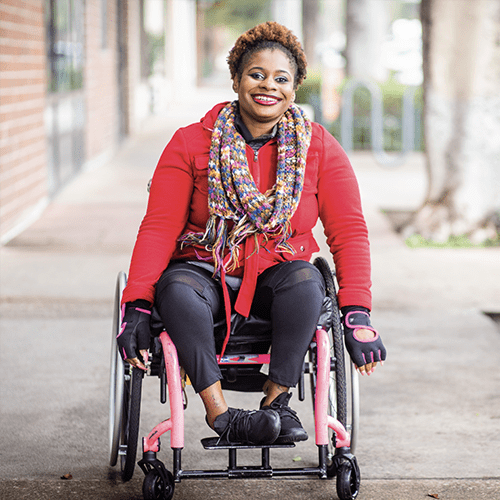Overall gap for AANHPI women is 80 cents, with Bangladeshi women making as little as 49 cents for every dollar a white man makes Read the report here WASHINGTON, D.C. – April 2, 2024 – Ahead of Asian American, Native Hawaiian and Pacific Islander (AANHPI)...
Spotlight on Success: Roots Community Birth Center
The Roots Community Birth Center demonstrates the exceptional value of community-based and -led forms of the birth center model for communities disadvantaged by structural racism, intergenerational underinvestment, and other forms of discrimination.
Improving Our Maternity Care Now Through Community Birth Settings
Research shows that care provided in community birth settings can make a concrete difference in improving maternity care quality and producing better outcomes, including for People of Color. Care in these settings that is led by Black, Indigenous, People of Color is a crucial approach for meeting the needs of communities affected by structural racism and other forms of discrimination. This report outlines the evidence that supports the unique value of community birth settings across different communities.
Reasonable Accommodations for Pregnant Workers: State and Local Laws
Thirty-one states, including the District of Columbia, and four cities have passed laws requiring some employers to provide reasonable accommodations to pregnant workers.
Using Paid Sick Days for Medication Abortion
The availability of paid sick days for medication abortion is an essential component of ensuring that people can access care that best suits their needs and preferences, and do so in ways that protect both their health and economic security.
Improving Our Maternity Care Now Through Midwifery
Research shows that midwifery care provides equal or better care and outcomes compared to physician care on many key indicators, including higher rates of spontaneous vaginal birth, higher rates of breastfeeding, higher birthing person satisfaction with care, and lower overall costs. Community-based and -led midwifery services are especially powerful.
Spotlight on Success: Mercy Birthing Center
The Mercy Birthing Center illustrates the potential of a nourishing midwifery-led unit within a hospital. The center is a separate unit operated by CNMs within Mercy Hospital St. Louis. It was established in response to women’s growing interests in receiving support for physiologic childbearing.
Saving the Lives of Moms & Babies
This 10-part series connects the dots between how different socioeconomic factors affect maternal and infant health, the outsize impact these factors have on Black, Indigenous, and other People of Color (BIPOC) communities, and recommendations to effect the change we need to ensure all moms and babies thrive.
Poor-Quality Built Environments Hurt Moms and Babies
The Problem: Deficiencies in neighborhoods’ physical conditions impair the health of pregnant people and their infants
The Maternal Mental Health Crisis Undermines Moms’ and Babies’ Health
The Problem: Untreated maternal mental health means worse health outcomes for moms and babies
Substance Use Disorder Hurts Moms & Babies
The Problem: Health care and support for pregnant people with substance use disorder are inaccessible and inequitable, and instead they are shamed, stigmatized, and punished.
Incarceration Harms Moms & Babies
The Problem: Mass incarceration is hurting pregnant people and their infants.
Racism Hurts Moms and Babies
The Problem: Racism is hazardous to the health of pregnant people and their infants
Homelessness Hurts Moms and Babies
The Problem: The homelessness crisis is worsening and imperils pregnant people and their infants.
A Systemic Failure: Immigrant Moms and Babies Are Being Denied Health Care
The Problem: Many immigrants are denied access to health care, leaving moms and babies at risk
Higher Temperatures Hurt Moms and Babies
The Problem: Our climate is getting hotter and it risks the health of moms and babies
Intimate Partner Violence Endangers Pregnant People and Their Infants
The Problem: Violence against pregnant people inflicts lasting harm on them and their babies
Paid Leave Is Essential for Healthy Moms and Babies
The Problem: The lack of national paid leave compromises the health and well-being of pregnant people and their infants
Called to Care
Too often in our country’s history, the ability to take time to care for yourself and others while maintaining your economic security has been predominantly reserved for the white and wealthy few. Yet, it is through providing care for one another that we knit together the bonds of our families and communities.
The Pregnant Workers Fairness Act
The Pregnant Workers Fairness Act would help prevent employers from forcing pregnant women out of the workplace and help ensure that employers provide reasonable accommodations to pregnant women who want to continue working.

Access, Autonomy and Dignity
The issue briefs in this series explore four important areas of reproductive health, rights, and justice for people with disabilities: access to abortion, access to contraception, healthy sexuality and sex education, and the right to parent.

